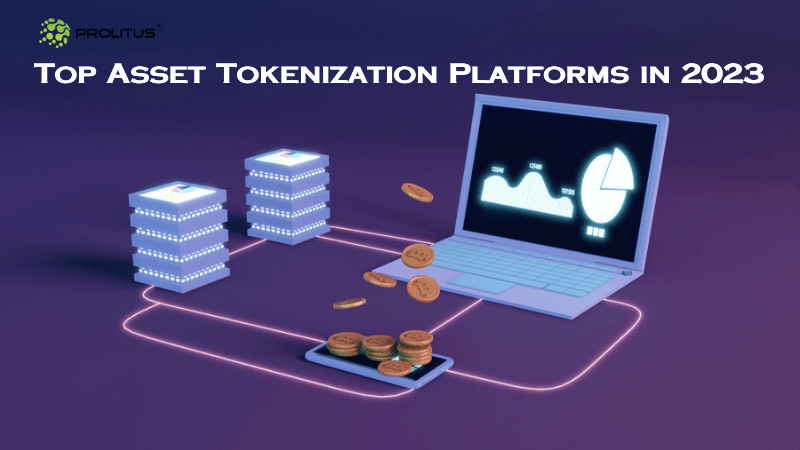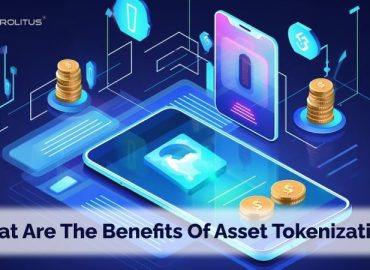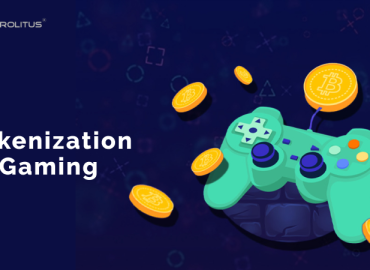Asset tokenization has become a game-changer in the world of finance and investment. It involves the conversion of real-world assets, such as real estate, art, or securities, into digital tokens that can be securely stored and efficiently traded on blockchain platforms. This innovation offers greater liquidity, transparency, and accessibility, opening up new opportunities for both issuers and investors. In 2023, several asset tokenization platforms stand out as leaders in this evolving landscape. Here are the top asset tokenization platforms to watch:
1. tZERO
tZERO is a pioneer in the asset tokenization space, backed by a substantial $330 million in investment. The platform offers a marketplace for trading private digital assets, and it’s known for providing issuers with a tailored approach to tokenize their securities and access the tZERO ATS (alternative trading system). This marketplace allows investors to buy and trade security-backed tokens. A standout example is the ASPEN digital security, representing a portion of the equity of the St. Regis Aspen Resort, which began trading on the tZERO ATS in 2020.
2. ConsenSys Codefi
ConsenSys Codefi offers a comprehensive suite of blockchain applications designed for corporate clients. Codefi Assets, a part of the suite, focuses on top asset tokenization and digital asset management. ConsenSys boasts involvement in over $1 billion worth of tokenization projects, launches, digital assets, and currencies using Ethereum. It serves a broad developer community and collaborates with multinational organizations, positioning it as a significant player in the asset tokenization landscape.
3. Securitize
Securitize is an end-to-end fundraising platform that handles everything from primary issuance to secondary market trading. It supports various fundraising procedures, including “Mini-IPO,” “Reg. D,” and “Reg. D + Reg. S.” Post-issuance, businesses can be listed on Securitize Markets, a registered broker-dealer and Alternative Trading System (ATS) with the SEC and FINRA. Investors can buy and sell digital securities on this marketplace, making it a key player in the field.
4. Polymath
Polymath specializes in the creation, issuance, and management of digital tokens on the blockchain. It introduced the ERC-1400 token standard, or the “security token standard,” designed to standardize the creation, trading, and management of security tokens. Their latest release, Polymesh, is a blockchain exclusively designed for security tokens, incorporating regulatory standards into the blockchain’s foundational layer to simplify compliance for participants.
5. Bitbond
Bitbond, founded in Germany in 2013, primarily offers technology for tokenized bonds. Banks use Bitbond’s white-label solution to streamline the bond issuance process, reducing overall expenses and providing a competitive advantage. Bitbond made waves in 2019 by pioneering Germany’s first Security Token Offering (STO), allowing investors to gain exposure by purchasing Bitbond Tokens (BB1).
6. Tokeny Solutions
Tokeny Solutions’ T-REX platform enables users to create, manage, and transfer security tokens, focusing on issuer-investor interactions. The T-REX platform features numerous capabilities, including token recovery mechanisms, investor onboarding, compliance enforcement, and reporting. Tokeny’s blockchain-based identification system, ONCHAINID, ensures compliance and allows for quick token recovery. Their platform is constructed on top of the T-REX protocol, known as ERC-3643, the “official standard for permissioned tokens.”
7. Tokensoft
Tokensoft provides blockchain technology for issuing digital assets and allows customers to establish compliance requirements for digital assets and securities. Collaborating with Arca Labs and Anchorage, Tokensoft developed the first SEC-registered securities on the blockchain, known as ArCoin tokens on the Ethereum blockchain.
8. Securrency
Securrency is a tool provider for issuers, brokers, and alternative trading system (ATS) providers. Their tools create, manage, and trade tokenized securities, using interoperable token standards like CAT-20 and CAT-721 across various blockchains, including Ethereum, Ripple, and Stellar. This approach significantly enhances liquidity by allowing the transfer of security tokens to any compatible blockchain.
9. ADDX (formerly iSTOX)
ADDX is a regulated asset tokenization platform based in Singapore, specializing in private equity and real estate assets. The platform offers secure and compliant trading for accredited investors and a broad range of alternative investments.
10. Harbor
Harbor is an end-to-end platform for tokenizing real estate, private equity, and other alternative assets. Its comprehensive solution includes investor onboarding, compliance checks, and secondary market trading.
These asset tokenization platforms are making waves in 2023 by unlocking new possibilities for businesses, issuers, and investors. As the market continues to evolve, we can expect more innovation and growth in this space, ultimately transforming the way we invest in and trade real-world assets.
Unlocking the Potential Benefit of Asset Tokenization
Asset tokenization, powered by blockchain technology, is transforming the way we invest and manage assets. This innovative approach brings a multitude of benefits for both issuers and investors. Here, we explore some of the key advantages that asset tokenization promises to deliver:
Streamlined Processes and Increased Efficiency
Blockchain technology eliminates the need for intermediaries, reducing the time and costs associated with various financial processes. By leveraging smart contracts, transactions can be automatically executed when predefined conditions are met. This efficiency not only streamlines the issuance of tokens but also extends to corporate actions, reconciliation, and other crucial operations.
Cost Savings and Improved Economics
The automation, transparency, and reliance on the public internet provided by blockchain lead to significant cost reductions. In fact, blockchain has the potential to cut bond issuance costs by up to 90% and reduce fundraising costs by up to 40% compared to traditional private placement methods. These cost savings benefit both issuers and investors, potentially resulting in higher yields and returns.
Enhanced Liquidity and Portfolio Diversification
Tokenization breathes new life into traditionally illiquid and non-fractionable assets, making them accessible to a broader pool of investors. This increased liquidity empowers investors to diversify their portfolios by gaining exposure to assets that were previously out of reach. Real estate, private equity, and other alternative investments become more accessible through tokenization.
Transparency and Dispute Resolution
The blockchain acts as a single, immutable source of truth, reducing disputes and inaccuracies in record-keeping. This transparency benefits all parties involved, from investors to issuers. The blockchain’s tamper-proof nature ensures the integrity of asset ownership records, enhancing trust and security in financial transactions.
Compliance Made Easier
The financial industry invests significant resources—approximately $181 billion per year—into compliance. Blockchain technology simplifies compliance management by enabling the encoding of regulatory requirements, client eligibility information, and security-specific transfer rules into digital wallets and smart contracts. This automation results in more efficient compliance monitoring, reducing the time and effort required to know your customer (KYC) procedures.
Faster Settlement
Blockchain drastically accelerates the settlement of investment transactions. It replaces the traditional three-step process with a near-instantaneous two-step process—match and settle. The smart contract facilitates the direct exchange of cash and securities into each party’s wallet. This expedited settlement allows funds and investments to return to work faster.
The benefits of asset tokenization extend beyond cost savings and efficiency improvements. This revolutionary approach democratizes investment opportunities, offers enhanced liquidity, and promotes transparency and compliance. As the momentum behind asset tokenization continues to grow, it is poised to reshape the way we invest and manage assets, with experts predicting substantial growth in tokenized illiquid assets by 2030.
Asset tokenization is not just an innovation; it’s a paradigm shift in finance, offering a myriad of benefits for all participants in the financial ecosystem.
Are You Looking for a RWAs Tokenization Development Company?
Investing in RWAs tokenization is not just about the present; it’s about the future. Your chosen partner should offer solutions that stand the test of time, adapt to changing regulations, and remain relevant in a rapidly evolving financial environment.
The choice of your RWAs tokenization development company is a decision that can shape your investment journey. Make it wisely, and you’ll embark on a path filled with opportunities, efficiency, and growth.
At Prolitus, we understand the potential of asset tokenization. With years of experience, innovative solutions, and an unyielding commitment to trust and security, we are your trusted partner in the world of RWAs tokenization.





